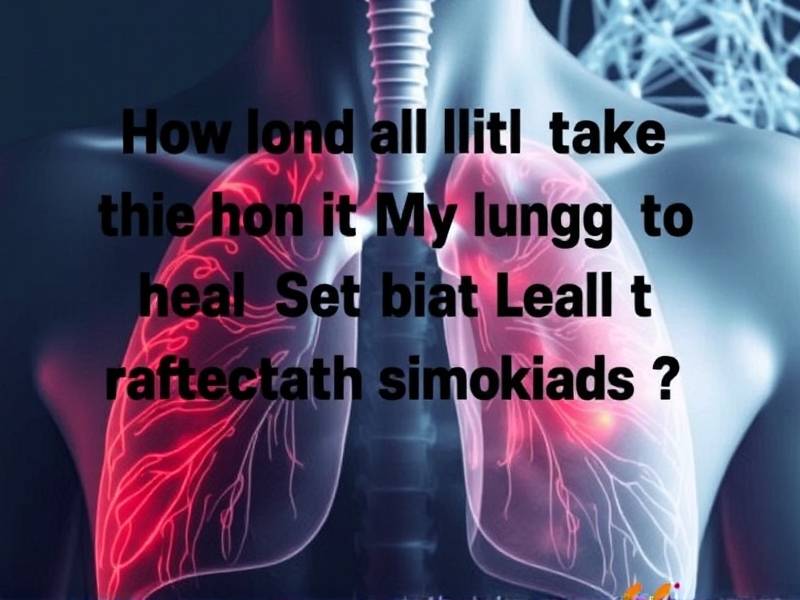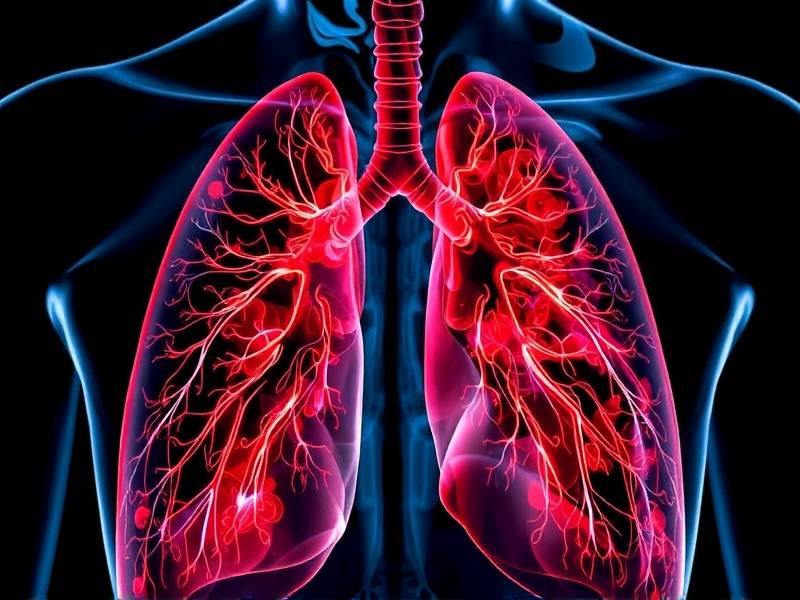How Long Will It Take for My Lungs to Heal After Quitting Smoking?
The Journey to Healing: How Long Does It Take for Your Lungs to Recover After Quitting Smoking?
Introduction: Quitting smoking is a significant step towards better health, and one of the most common questions among smokers who have decided to take this journey is: "How long will it take for my lungs to heal after quitting smoking?" The answer is not straightforward, as it depends on various factors. In this article, we will explore the healing process of your lungs post-quitting smoking and provide insights into the timeline you can expect.
I. Understanding Lung Damage from Smoking

A. The Effects of Tar and Nicotine Smoking introduces harmful substances like tar and nicotine into your lungs, leading to inflammation, irritation, and damage to lung tissue. These substances can cause chronic bronchitis, emphysema, and an increased risk of lung cancer.
B. The Gradual Recovery Process When you quit smoking, your lungs begin the process of healing immediately. However, it's important to note that the extent of damage and recovery time can vary from person to person.
II. Timeline for Lung Healing After Quitting Smoking
A. Immediate Benefits Within 48 hours of quitting smoking, your body starts experiencing immediate benefits such as improved sense of taste and smell. Your heart rate returns to normal levels.
B. One Month Post-Quitting After one month without smoking, you'll notice significant improvements in lung function. The cilia (tiny hair-like structures in your airways) start regenerating, which helps clear mucus from your lungs more effectively.
C. Six Months Post-Quitting By six months post-quit date, you'll experience further improvements in lung function and a reduced risk of respiratory infections like bronchitis or pneumonia.
D. One Year Post-Quitting After one year without smoking, your risk of heart disease decreases by half compared to when you were a smoker.
E. Five Years Post-Quitting At five years post-quit date, your risk of stroke decreases significantly compared to that of a smoker.

F. Ten Years Post-Quitting After ten years without smoking, your risk of lung cancer decreases by about half compared to that of a smoker.
III. Factors Influencing Recovery Time
A. Age at Quitting Younger individuals tend to recover faster than older individuals due to their bodies' higher regenerative capacity.
B. Duration of Smoking Habit The longer you smoked before quitting, the more time it may take for your lungs to heal completely.
C. Genetic Factors Your genetic makeup can play a role in how quickly you recover from lung damage caused by smoking.
D. Environmental Factors Exposure to secondhand smoke or air pollution can delay recovery time.
Conclusion: The journey towards healing after quitting smoking is unique for each individual but typically involves gradual improvements over time. By understanding the timeline and factors influencing recovery, you can be better prepared for the process ahead and stay motivated on your path towards better health.
